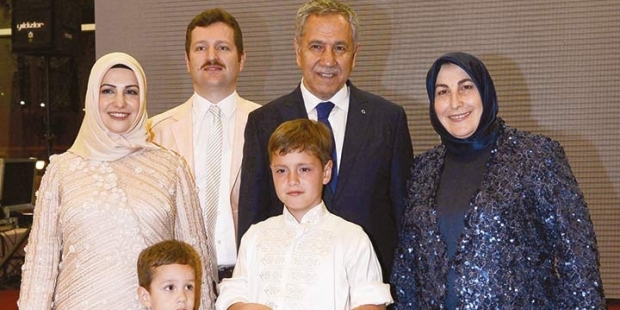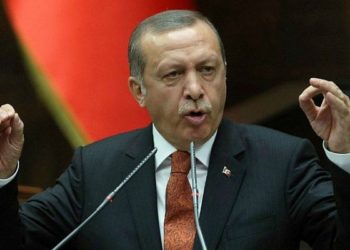In many chaotic and tumultuous historical periods, political upheavals eventually begin to target the people close to the power center, the very same source that carries the torch of socio-political transformation either in a benign form or a violent fashion.
Turkey’s ever-expanding post-coup crackdown sets a similar precedent. In a sign of trouble for party elites, Ekrem Yeter, son-in-law of Bulent Arinc, one of the founding fathers of ruling Justice and Development Party (AKP), former Parliament Speaker and deputy prime minister, has been detained over alleged links to Gulen Movement. The movement was designated as a terrorist group by the government and is held responsible for orchestrating a failed coup on July 15, 2016.
Mr. Yeter, a doctor and academic at Ankara-based Yildirim Bayezit University Medical Department before being sacked by a government decree on Sept. 1 last year, was jailed pending trial after appeared at a court in Ankara on Monday.
In his initial reaction to the arrest of his son-in-law, Mr. Arinc told Hurriyet that he expects the release of Mr. Yeter soon. Though concerned, he tried to portray a sober and calm figure, rejecting Gulenist links of his son-in-law. “We believe that he has no ties [to Gulen movement].”
The case of Mr. Arinc, one of the heavyweights of the AKP, exposes a puzzling dilemma for President Recep Tayyip Erdogan and his government given its long history of cordial rapport with the movement. Until President Erdogan and his party fell out with Mr. Gulen in late 2013, both forged an enduring alliance that lasted more than a decade. During that period, many of the AKP bigwigs, including Mr. Arinc, had cultivated close ties with the movement, emerged as ardent supporters of Mr. Gulen and his activities.
The turn of tides also turned tables for many government figures who now studiously seek to bury their past relationship with the movement.
Over the weekend, Birol Erdem, a chief advisor to Prime Minister Binali Yildirim, has been detained along with his wife over alleged ties to Gulen movement. He previously served in Turkey’s highest judicial body and as undersecretary of Justice Ministry.
Another prime example for how the anti-Gulenist frenzy wrought havoc within AKP rank-and-file was the arrest of the son-in-law of Istanbul Mayor Kadir Topbas. Following the failed July coup attempt, Omer Faruk Kavurmaci, husband of one of Mr. Topbas’ daughters, found himself at crosshair of the government. Last month, he was released pending trial on the ground of health problems.
The late high-profile detentions punctured any illusion about expectations in aftermath of the referendum that the government might slow down 11-month sweep of purge and crackdown that rattled a nation. Contrary, it now boiled down to a point where even members of President Erdogan’s inner circle no longer feel secure.

********
This article was possible thanks to your donations. Please keep supporting us here.






















